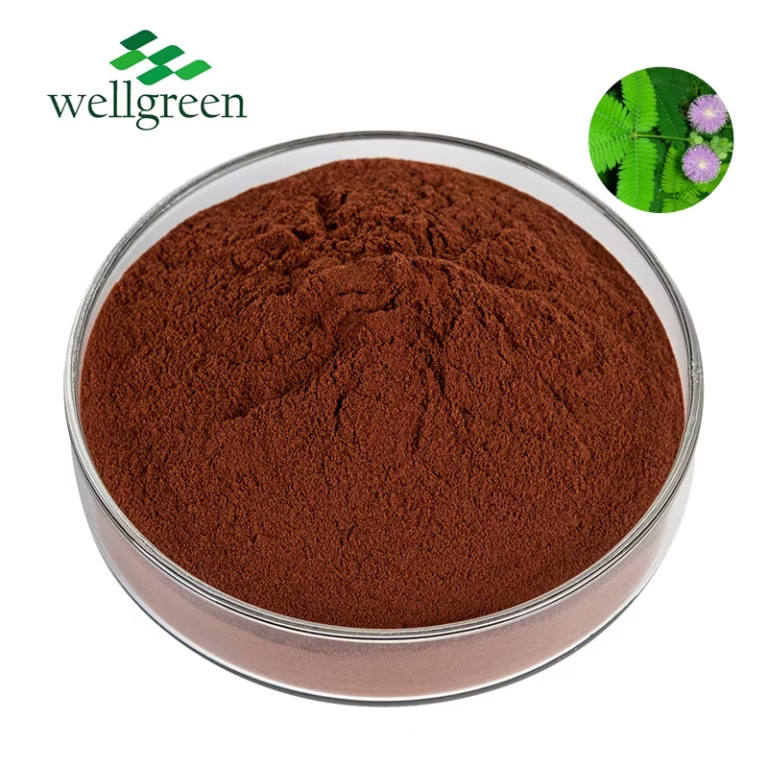
The root of this Amazonian plant, commonly known as quebracho blanco, have been employed for time immemorial in traditional medicine across South America.
Ethnobotanical studies reveal the effectiveness of M. tenuiflora extracts in treating a wide range of ailments, including pain.
Indigenous practitioners administer the extract in various forms such as teas to treat symptoms.
Some key applications of M. tenuiflora contain astringent effects, and it is also regarded to possess anti-inflammatory properties.
Comprehensive Profiling of Mimosa tenuiflora Root Bark Extracts
This study focuses on analyzing the phytochemical composition of Mimosa tenuiflora root bark extracts. The extraction methods employed involved various solvents, including water. The resultant extracts were then subjected to a battery of analytical tools such as thin-layer chromatography (TLC) to detect the predominant phytochemical constituents. Preliminary results reveal the occurrence of a array of secondary metabolites, including terpenoids, which are known for their biological properties. This comprehensive phytochemical analysis aims to provide valuable insights into the potential of Mimosa tenuiflora root bark as a source of natural remedies.
Ancient Uses and Potential Medicinal Benefits of M. tenuiflora Root Bark
M. tenuiflora, a tree renowned for its unique root bark, has been used in traditional medicinal practices for epochs. Indigenous cultures have long acknowledged the medicinal properties of this powerful ingredient. The root bark is historically processed and applied to address a spectrum of ailments, including digestive issues.
Contemporary research is commencing to explore the efficacy of M. tenuiflora root bark in providing medicinal benefits. Studies have suggested that certain constituents present in the bark may possess antiviral properties, affecting its potential to combat a diverse array of diseases. Moreover, preliminary research suggests that M. tenuiflora root bark may also possess neuroprotective effects, though more comprehensive studies are needed to validate these findings.
Pharmacological Activity of Mimosa tenuiflora: A Review of Root Bark Studies
Mimosa tenuiflora, commonly referred to as the jurema shrub, has get more info a profound history of folk medicinal practice in South America. The root bark of this variety is particularly recognized for its diverse therapeutic properties. Numerous investigations have explored the potential actions of M. tenuiflora root bark, revealing a range of constituents with noteworthy biological potency.
- One domain of particular interest is the anti-inflammatory potential of M. tenuiflora root bark extracts.
- Initial findings suggests that these formulations may regulate the pain response, potentially providing comfort from multiple inflammatory disorders.
- Additionally, studies have suggested that M. tenuiflora root bark may possess antioxidant characteristics, which could contribute to human health by mitigating oxidative stress.
The complex nature of M. tenuiflora root bark ingredients and its capabilities for therapeutic treatments warrant further exploration. As research continues, a more comprehensive understanding of the pharmacological activity of M. tenuiflora root bark may emerge, hopefully leading to the development of novel and effective therapeutic interventions.
Extraction and Analysis of Medicinally Potent Compounds from *M. tenuiflora* Root Bark
This research focuses on the extraction of medicinal compounds from the root bark of *M. tenuiflora*. Numerous extraction methods, including solvents, will be utilized to purify a variety of extracts. The analysis of these extracts will involve techniques like mass spectrometry and structure elucidation. The pharmacological activities of the isolated molecules will also be evaluated using cellular systems.
Ultimately, this study aims to identify and characterize effective compounds from *M. tenuiflora* root bark with potential uses in healthcare.
Delving into the Anti-inflammatory and Antioxidant Properties of Mimosa tenuiflora Root Bark
Mimosa tenuiflora, commonly known as the Horse tree, is a shrub native to tropical regions. Recent research has focused on its {potentialuses for human health, particularly concerning its immunomodulatory and radical mitigating properties. The root bark of Mimosa tenuiflora is a rich wellspring of bioactive constituents such as phenols, which have been shown to exert potent influences against cellular damage.
- Studies have demonstrated that extracts from Mimosa tenuiflora root bark can potentally reduce the production of inflammatory mediators in both *in vitro* and *in vivo* models.
- Furthermore, these extracts have exhibited notable protective effects by eliminating harmful free radicals, protecting cells from damage.
These findings suggest that Mimosa tenuiflora root bark holds promise as a {naturaltreatment for various inflammatory and oxidative stress-related conditions. However, further research is needed to fully elucidate its mechanisms of action and optimize its therapeutic use.
